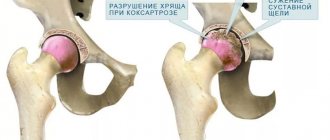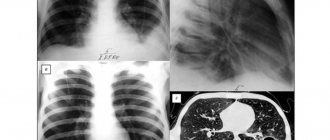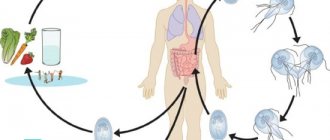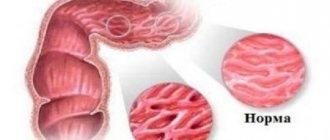Why does stomach acidity occur?
Before considering the reasons for increased acidity in the stomach, let's figure out what gastric juice is. It is produced by cells in the lining of the stomach and is essential for maintaining digestive processes that ensure the absorption of nutrients. The acid concentration in this juice is the most important component of the normal functioning of the stomach. Stomach acidity increases for the following reasons:
- Wrong diet.
Increased acidity in the stomach can be caused by excessive consumption of fatty and spicy foods, alcoholic drinks, irregular meals in small portions, or consumption of too much food at one time.
- Inappropriate chewing of food.
If food is consumed too quickly, unchewed pieces enter the human stomach, the digestion process of which can be very difficult. The stomach has to produce more gastric juice, resulting in an imbalance in the acid balance.
- Medicines.
Long-term use of certain pharmaceutical drugs that have a negative effect on the mucous membranes of the stomach can increase acidity. These medications include: aspirin; paracetamol; analgin; hormonal drugs.
- Stress.
Emotional overload and excessive stress can lead to various health problems, in particular with the gastrointestinal tract. In stressful situations, people often forget to eat or drink alcohol, which has a detrimental effect on the stomach lining.
- Smoking.
Tobacco smoke entering the body disrupts the normal functioning of the stomach. Often, heavy smokers complain of problems in the digestive system. Smoking on an empty stomach causes especially severe harm, since toxic substances have the strongest effect on the mucous membranes, increasing the secretion of gastric juice and increasing its acidity level.
- Helicobacter.
This bacterium, which was discovered relatively recently, causes diseases such as gastritis and peptic ulcers. It is able to live in the stomach, as it easily adapts to these conditions. When Helicobacter enters the human body, it begins to produce enzymes that damage the gastric mucosa and disrupt the acid balance.
- Infections.
After infectious diseases, such as the common flu, complications may occur that affect the gastric mucosa. This disrupts the production of gastric juice and changes its acidity.
Acidity in children
The condition of high acidity in children is not at all unique. Most often it is provoked by poor nutrition, Helicobacter pylori infection, or stress caused by school or home troubles. It is characteristic that such dysfunction of the digestive system is more often observed in babies who are artificially fed after birth.
At the same time, hypersecretion of acid can develop due to heredity. Symptoms of childhood pathology practically correspond to similar symptoms in adults. When the pathology appears in an infant, he is plagued by frequent constipation, and the child experiences airy belching that has a sour smell. The appearance of such signs is a reason to immediately show the child to a specialist.
Symptoms of high acidity
Among the key signs of increased acidity in the stomach are severe painful sensations in the pit of the stomach. The pain is dull, aching and nagging in nature, and can occur 2 hours after eating. Many people in such situations begin to eat more liquid foods and cereals. A proper diet helps to significantly reduce pain.
The second main symptom is heartburn, which is a strong burning sensation that travels up the esophagus. This is a sign that hydrochloric acid has entered the esophagus. Sometimes people experience the disease without obvious reasons, but who consume products such as:
- tomato or orange juice;
- fatty foods;
- certain types of mineral water;
- smoked meats with spices, etc.
In this case, drinking Borjomi water can alleviate the condition. Some people use a solution of regular baking soda or unroasted sunflower seeds. You should not abuse alkaline solutions and drinks, as they negatively affect the walls of the esophagus and stomach as a whole. Even a peptic ulcer may develop, and the risk of bleeding, the development of peritonitis and other diseases requiring surgical treatment increases.
Other common symptoms of impaired acidity include:
- sour belching after eating;
- constipation;
- nausea or vomiting after eating (associated with increased levels of hydrochloric acid);
- the appearance of a white coating on the tongue;
- intestinal colic.
Foods that reduce acidity
Almost all products that fall under the concept of proper nutrition will help cope with excess acidity, unless the disease is severe and has a rare frequency of manifestation. Feel free to include in your diet:
- potato;
- carrots and carrot juice;
- red beetroot;
- pumpkin;
- sea buckthorn decoction;
- sea buckthorn oil;
- alkaline mineral water.
Maintaining a proper lifestyle and nutrition will help you always stay healthy and vigorous. After all, it is much easier to prevent the occurrence of a disease than to cure it.
How to determine the level of acidity in the stomach?
The acid balance affects the gastrointestinal tract, so it is important to periodically check the concentration of hydrochloric acid in the gastric juice. Acidity can be normal, low or high, and the following methods are used to check it:
- examination by probing method;
- examination using an acid test;
- tracking the body's reactions to different foods.
Let us consider these methods for determining stomach acidity in more detail.
Probing
The probing examination method involves the use of special probes. One of them (thin) is necessary to study the functioning of the digestive organs and determine their acid balance. There is no doubt about the accuracy of the readings.
How does the disease manifest itself?
This disease consists of an imbalance of excessive production of hydrochloric acid and its elimination.
The disease is accompanied by symptoms such as:
- heartburn (the effect of stomach acid on the esophageal mucosa) after eating food or if you take a horizontal position;
- unpleasant belching that has a bitter and sour taste;
- constant heaviness in the stomach, i.e. a feeling of fullness, even if the food intake was in small quantities;
- bloating;
- pain in the intestinal area;
- possibility of gas formation;
- constipation or, conversely, diarrhea;
- decreased appetite due to constant heartburn or pain after each meal;
- burning in the throat;
- apathy, drowsiness, decreased performance, bad mood, irritability;
- in rare cases, nausea and vomiting occur;
- gray, yellow, white coating on the tongue.
A disease accompanied by high acidity is gastritis, the symptoms of which may be similar to those of erosion or stomach ulcers. To make an accurate diagnosis, it is necessary to undergo certain types of procedures and pass a certain list of tests. After which diet and drug treatment are prescribed.
Treatment of stomach with high acidity
There are various drugs to effectively normalize the acid balance in the stomach. Only an experienced gastroenterologist can prescribe the correct and appropriate medications for you after examination and some research. To slow down the secretion of hydrochloric acid, the following medications are suitable to reduce stomach acidity:
- Rinatidine, Famotidine and Kvamatel. These are all antihistamine medications that are affordable but not suitable for long-term treatment due to their ability to affect hormone production in the body.
- Nolpaza, Omeprazole, Controloc. Helps reduce the intensity of hydrochloric acid secretion by the stomach.
- Motilium and Domidon stimulate the movement of food from the stomach to the intestines.
- Increased acidity is treated with antacid drugs that neutralize acid. These include Almagel, Maalox and Phosphalugel, which are based on chalk, soda, kaolin, magnesia and other substances.
In the long term, successful treatment requires following a diet for high stomach acidity.
High acidity in pregnant women
By the way, for pregnant women, high levels of gastric acidity may be a natural phenomenon. A pregnant woman is characterized by abundant nutrition, since she is obliged to provide nutrients and energy to both herself and the child she is carrying within herself. The stomach begins to gradually adapt to the need to work harder and actively produces hydrochloric acid.
Because of this, pregnant women are often plagued by heartburn and feel constantly nauseous. Also, the growing uterus “helps” with this, since it changes the location of the peritoneal organs, constantly squeezing them. Because of this, symptoms that are characteristic of excess acidity are noticeable in pregnant women even when acid production is correct.
If a pregnant woman begins to worry about her stomach, she needs to notify the gynecologist about the problem. This is important because it is likely that the woman has signs of acute gastritis or ulcerative pathology that were not previously diagnosed during examination.
Folk remedies for high stomach acidity
To combat high stomach acidity, you can use various traditional methods, among which the most effective and popular are the following:
- Freshly squeezed carrot juice. Drinking one glass of drink per day significantly reduces the acid content in gastric juice.
- Potato juice. The drink should be drunk in small quantities on an empty stomach or in the evening before bed. It is important to consume only freshly prepared juice, as it cannot be stored.
- Mineral water is good for reducing stomach acidity. For a month before meals, drink half a glass of mineral water. If you feel the usual discomfort after eating, drink another glass.
- Plums. To reduce the level of acidity in the stomach, you need to consume 200 g of fresh plums per day. You can also drink plum juice.
- Honey. Half a liter of warm water should be diluted with 100 g of bee honey. The mixture should be taken in a small amount before meals. The course of treatment lasts from a couple of months. The product is useful for people with gastritis and peptic ulcers.
- Pumpkin. You can boil or bake fresh pumpkin and eat it regularly, gradually increasing the dose from 30 to 150 g. To achieve the best result, you should eat pumpkin half an hour before the main meal.
Some people use regular baking soda to reduce stomach acid. It is important to note that using this remedy too often can only make things worse and have the opposite effect. We recommend using soda to normalize the acid balance in emergency situations when there are no other remedies at hand.
ethnoscience
Gastric acidity (acidity of gastric juice) is a characteristic of the concentration of acid in the lumen of the stomach or in gastric juice (measured in pH units).
The gastric mucosa is conventionally divided into two zones. In one of them, cells produce hydrochloric acid necessary for digestion, in the other they produce alkaline substances that neutralize the effect of acid. The presence of hydrochloric acid helps the stomach to process fairly solid food. Neutralization prevents excess acid accumulation. If these processes are carried out in parallel, the stomach has normal acidity levels. That is, it works harmoniously, perfectly performing the digestive function and without causing trouble to its owner.
It happens that under the influence of various factors, more hydrochloric acid is formed in the stomach than the alkaline substances that neutralize it. It happens that due to damage to the gastric mucosa, alkaline substances cease to be produced completely, causing the accumulation of acid. In this case, increased stomach acidity occurs.
Increased stomach acidity - causes.
In fact, increased stomach acidity is not quite a harmless nuisance, as it might seem at first glance. The production of hydrochloric acid in the stomach in excessive quantities in most cases is a symptom of some very serious diseases: peptic ulcer, gastritis or gastroduodenitis.
There are several reasons that, in addition to illness, can provoke increased production of gastric juice, these are:
- unhealthy diet. In a hurry, food is poorly chewed and insufficiently processed by saliva, which contains substances that help stomach cells neutralize the resulting acidic environment. To digest large unchewed pieces, the stomach is forced to work harder, releasing more hydrochloric acid. This disrupts the rhythm of the cells responsible for the parallel production of acid and alkaline substances that neutralize it. A similar process is observed in the stomach both during overeating and during irregular meals.
- food that is too salty.
- fatty and fried foods.
- spicy dishes.
- baked goods and other baked goods.
- low-quality products.
- strong tea and coffee, onions, garlic, chocolate.
— taking some medications can negatively affect the functioning of the stomach, so you should always carefully study the part of the instructions regarding contraindications.
- increased acidity can occur as a result of an infectious disease, since during this period the body is susceptible to the action of pathogenic bacteria. Once in the stomach, bacteria upset the balance between acid production and neutralization. As a result, the functioning of the stomach as a whole is disrupted.
In addition, increased stomach acidity can be affected by:
- bad habits - smoking and alcohol. It provokes excess acidity and smoking, smoking on an empty stomach has a particularly negative effect. At this point, the stomach is exposed to toxic substances that begin to provoke the release of acid in the gastric juice.
- constant stress, nervous tension, fear and anxiety.
- heredity.
Increased stomach acidity - symptoms.
Symptoms of high acidity: frequent heartburn, in which gastric juice enters the esophageal mucosa, causing a burning sensation that is extremely unpleasant. Heartburn is often accompanied by belching with a sour or bitter taste. These manifestations are possible after eating food that affects the excessive production of hydrochloric acid.
Heaviness in the stomach after eating and pain in the stomach between meals. This happens due to disruption of the digestive process. Often heaviness in the stomach is accompanied by bloating, and there may also be frequent and causeless constipation or diarrhea.
Other symptoms: loss of appetite, frequent bad mood, irritability, apathy, loss of interest in life, emotional lethargy.
Increased acidity treatment.
Treatment of high stomach acidity should be carried out under the supervision of a specialist and only after this fact is confirmed by examination of the stomach.
Drug treatment involves prescribing drugs that lower acidity levels and block the production of hydrochloric acid in the stomach. In addition, medications may be prescribed to help normalize all processes associated with digestion.
Treatment requires adherence to a diet that excludes fatty, spicy, salty, and sweet foods. It is recommended to cook soups using the broth of lean meat or fish, and consume porridge from cereals that are easily digestible (oats, rice, buckwheat).
Of the vegetables, only those containing a minimal amount of fiber are allowed (potatoes, cauliflower, carrots, rutabaga).
The preferred drinks are dried fruit compote, jelly, and weak tea; Carbonated drinks and coffee are prohibited.
During the treatment period, stress and depression should be avoided. If increased acidity is not yet the cause of a serious illness, then if the recommendations are followed, the work of the stomach and the level of acidity will normalize over time.
Increased stomach acidity - treatment with folk remedies.
It is very useful to drink a glass of bifido or lactoproducts at night. In case of exacerbation of chronic gastritis, daily, but it is better to do this constantly.
If you have high acidity, it is recommended to eat green apples of sweet varieties (2 apples per day). You need to eat them on an empty stomach, peel them and grate them on a coarse grater.
Potato juice also helps reduce acidity. You need to drink it in the morning, on an empty stomach, before meals, 0.5 cups.
Just like potato juice, you can drink cabbage juice, but during an exacerbation it should not be consumed.
Pumpkin porridge is healthy; also introduce beets into your diet - boiled, fresh (in salad) and beet juice.
For 2 months, drink a glass of warm water two hours before meals, dissolving 50 g of honey in it.
Eggshell. Wash the eggshells thoroughly, dry and grind into powder. Daily intake – 2 teaspoons.
In the treatment of high acidity in folk medicine, herbal infusions and herbal teas have long been successfully used.
A mixture of mint leaves, linden blossom, fennel and flax seeds taken in equal parts. Brew 1 tbsp. spoon mixture with 1 cup boiling water, leave until cool. The infusion should be drunk twice a day, 1/4 cup. This infusion relieves pain during exacerbation and gently normalizes acidity.
A collection of mint, calendula flowers, sandy immortelle, and St. John's wort taken in equal parts. This herbal mixture can be brewed in the same way as tea. Pour half a tablespoon into 0.5 liters of boiling water; when it’s brewed, pour a third into the cup and top up with boiling water.
Another good collection for treating high stomach acidity. Its author is N. G. Kovaleva. Composition: 10 g each. chamomile, cudweed, Crimean rose, horsetail and calendula. 20 gr. wormwood God's tree, agrimony. 30 gr. rose hips, dill seeds. Plantain and St. John's wort leaves - 40 g each. Add 70 gr. yarrow. Brew the mixture at the rate of 1 - 2 tbsp. spoons per glass of boiling water, in a thermos overnight. Take 15 minutes before meals, 1/2 cup, 3 - 4 times a day. You need to drink this mixture for 3 weeks, then take a week break. This collection gently balances acidity, lowers high acidity, and increases low acidity. It treats not only chronic gastritis with high acidity, but also stomach and duodenal ulcers, and helps with heartburn.
Increased stomach acidity - diet.
Meals should be fractional, preferably 5 - 6, but at least 4 times a day. Eat small meals.
It is imperative to exclude coarse, salty, hot, spicy, and sour foods. Very hot or very cold foods are also bad for your stomach. Canned and smoked foods are also not your option. Give preference to boiled or baked dishes.
It’s a pity, but you will have to completely exclude fresh bread from your diet, especially rye bread, and pastries made from puff pastry. Your option is yesterday's bread, dried crackers.
Meat and fish broths are harmful to the stomach, as well as sorrel, mushroom soups, and okroshka.
Give preference to vegetarian soups made from vegetables: beets, potatoes, carrots, pumpkin, zucchini, cauliflower. For meat soups, you can afford puree soup.
During the period of exacerbation of gastritis, beware of eating fresh cabbage, sorrel, cucumbers, rutabaga, and radish.
If you cannot do without meat, then choose low-fat varieties. Cook meat (chicken, turkey, veal), boiled or steamed. The best option is cutlets, meatballs, mashed potatoes, rolls. You can also eat boiled offal - tongue and liver.
You can eat low-fat fish. Boil it, bake it, make aspic.
With increased stomach acidity, porridges are useful, with the exception of corn. Porridge can be prepared with water or milk with the addition of butter. Give preference to semolina, rice, oatmeal, and buckwheat. Eat pasta - there will be no harm from it.
Feel free to include dairy products in your diet. Milk, low-fat kefir, yoghurt, yogurt, sour cream are useful. You can prepare a variety of dishes from fresh non-sour cottage cheese: cheesecakes, lazy dumplings, puddings. Milk soup will also be a good addition to your menu.
It is better to eat soft-boiled eggs or make an omelet from them. Fried and hard-boiled are not your option.
Sweets. Avoid chocolate and ice cream. You can eat honey, non-acidic jam, sugar.
Enjoy drinking dried fruit compotes and diluted juices from non-acidic berries. Jelly is useful, as it envelops the gastric mucosa, jellies, and mousses.
Eliminate kvass, carbonated water, and black coffee completely. It is better to drink tea with milk, or weak tea; you can also drink cocoa and coffee with milk.
Sample daily menu for treating high stomach acidity:
Breakfast: steamed meat balls, mashed potatoes, tea with milk.
Lunch: Fruit jelly, or a glass of milk.
Lunch: Milk rice soup, potato casserole with boiled meat, apple compote.
Afternoon snack: Rosehip decoction with crackers.
Dinner: Curd soufflé, buckwheat milk porridge, fruit jelly.
Before going to bed, drink a glass of milk.
Prevention
Measures to prevent the occurrence of high acidity can be easily determined based on the causes of its occurrence. You need to carefully monitor your diet: do not overeat, do not eat “on the go,” eat food at clearly designated hours and chew it thoroughly. You should consume foods that have an aggressive effect on the stomach with restrictions. It is advisable to get rid of the habit of smoking and drinking alcoholic beverages. It is equally important to learn to control your emotional state in order to be able to withstand stress.
Sources: open Internet publications, including galinanekrasova.ru
Reducing stomach acidity with herbs
In addition to the above remedies, medicinal herbs that affect the composition of gastric juice can be used to reduce acidity in the stomach. For example, decoctions and tinctures of the following herbs help alleviate the condition of an imbalanced acid balance:
- calendula;
- coltsfoot;
- plantain;
- dandelion;
- mint;
- blooming Sally;
- chamomile, etc.
To prepare St. John's wort infusion you will need 6 tbsp. herbs and a couple of glasses of boiling water. The product must be infused for 15 minutes, after which it should be strained and taken orally 3 times a day before meals, a couple of tablespoons.
Another remedy can be made by mixing equal parts of chamomile, fennel fruit, peppermint and licorice root. 2 tbsp. the mixture of these herbs must be poured into 0.5 liters of boiling water and left to infuse for several hours, and then strain. Drink 1/3 glass three times a day, an hour after meals.
Mix 3 parts each of St. John's wort, yarrow and chamomile with one part celandine. Pour a glass of boiling water over 1 tbsp. the resulting mixture and leave to infuse for one hour under the lid. Strain and take half an hour before meals, 1/3 cup three times a day.
An increased level of acidity in the stomach is not the most dangerous diagnosis, but it does cause some discomfort. Try to normalize the acid balance as soon as possible in order to prevent serious consequences that require long and complex treatment.
Treatment
An effective solution in treating pathologies such as high acidity is the use of apple cider vinegar. You can also use this recipe. Prepare:
- caraway;
- ground black pepper;
- mint leaves;
- ginger;
- anise seeds;
- asafoetida;
- coriander;
- fennel;
- table salt.
It is necessary to take the indicated ingredients equally and take the resulting powder 1 tsp twice a day. after a meal, washed down with water. It is highly advisable to add fresh greens to your diet, which contain vitamins that help remove excess acid and digest food. An Indian dish made from Wright cucumbers and lettuce leaves is a good way to combat high acidity.
Cow's milk is another means of combating pathology. It should be drunk for several days, after which the person’s acidity will decrease. You also need to eat boiled rice every day. It is recommended to consume a lot of fresh carrots or drink their juice. Regular consumption of this vegetable helps reduce the concentration of gastric juice.
Prevention
Has a disease such as gastritis with high acidity been identified? Do not worry. After all, there are ways to prevent the deterioration of the condition and make the course of the disease easier (or prevent it altogether):
- Drug treatment. The doctor can prescribe medications in the form of tablets and suspensions that will prevent an increase in acidity and prevent pain in the stomach.
- Exclude the following foods: fatty fish, fried, sour and salty foods, canned food, vinegar, chocolate, strong coffee and tea.
- To reduce acidity, it is recommended to eat easily digestible and high-calorie foods; food should be steamed and have a liquid consistency (oatmeal, jelly), eat in small portions and often.
- Periodic visits to your doctor. If you have already detected increased acidity, then you need to regularly visit your doctor once or twice a year for a routine examination.
- Timely treatment of the gastrointestinal tract, if necessary.
- It is better to avoid stressful situations, because they can also increase acidity.
One of the most important organs of the digestive system is the stomach. It is involved in the processes of accumulation and processing of food, performing the function of breakdown, and promotes the secretion of gastric juice.
The measurement of normal acidity levels is made by calculating hydrogen ions.
Methods for studying indicators:
- pH-metry.
- Probing.
- acidotest.
Symptoms of increased stomach acidity:
- Heartburn that occurs after eating.
- Belching.
- Flatulence.
- Consolidation of feces.
- Pain in the stomach











